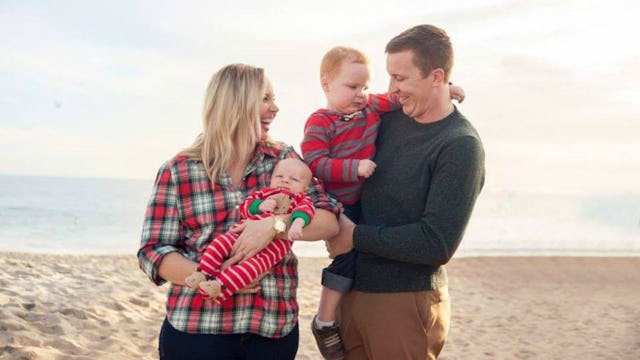6 Things I Learned On My Maternity Leave

I recently had another baby, and I’m about to go back work. Here are a few things that I learned while on my maternity leave:
1. It’s not fair.
The very fact that MAternity leave is guaranteed and PAternity leave is mostly a pipe dream shows the unbalanced approach we Americans, and most of the world, have to parenting. After a major abdominal surgery, most men would be laid up — waited on for six weeks with Netflix and healthy meals and physical therapy appointments. They certainly would not be tasked with the care of a newborn, who would rip at their nipples until they bled, and refuse to allow more than 37 minutes of sleep at one time. These men would also not be expected to “enjoy every minute” of this “recovery” time. My husband is a wonderful, loving, devoted man and father. He also will never understand what it’s like to give birth, and then stay home alone with a newborn five days a week while he returned to work.
2. It’s intense.
My son was entirely dependent on me, for everything — just as he was in the womb, except now he was out of it, and he was loud. I had no idea what he wanted. I lived in a perpetual state of anxiety for several weeks, especially after he lost more than 2 pounds after birth due to my milk’s late arrival. I’ll never forget that initial piercing cry, as he was desperate for food. Even after now chunking up nicely and becoming a regular chowhound just like his brother, he seems to never forget that urgency to eat — immediately.
Check out this Momsplained video on why moms make the best employees:
[ss_featured_video]
3. It’s as boring as it is intense.
Work is often intense, but it comes with rewards and validation. On maternity leave, no one says as they walk away: “Hey GREAT diaper change! You really nailed that one. It hit me.”
“Wow, AWESOME breastfeeding. So inspiring.”
Instead Josh would often respond to my AWESOME nursing or diaper changes with sheer screams. He was, like his brother, a vocal child. I initially thought he was always hungry (see #2 above), which resulted in overeating and tons of tiny poops and farts.
But even though I was doing something immensely important, the day-to-day moments were boring. I didn’t have anyone to talk to. I relished preschool drop-off so that I could say hello to an adult. Once Jake’s preschool teacher hugged me and I felt tears roll down my face as I breathed heavily. It was pathetic and poignant all at once. I tried to plan one major outing a day. Trader Joes and Target never felt so wild and crazy.
4. It’s lonely.
I don’t know why we Americans tend to do this, and maybe I contribute to this by isolating myself, but we tend to isolate our new moms. It’s almost as if moms give birth, spend a couple of weeks with visitors and family — and then in those wild weeks from 2 to about 6-12 — we leave them alone, waiting for them to emerge with shiny hair and flat stomachs, and children who survived the first three months without society’s interference, or help.
I felt immense pressure to “look good” and to immediately slim down after giving birth. It consumed me nearly as much as the pressure to feed my baby enough and also somehow keep the house and my 3-year-old functioning. I’d done it once before — without another son — and I’d seen my friends do the same. You even see it on social media. Watch a new mom’s Facebook page. There are the hospital photos, the one and two-week photos — and then things usually go dark for a month or two, perhaps with the occasional selfie or post to a mom’s group. The mom reemerges in month three: thinner, heading back to work, with a child who now somewhat sleeps and eats in a regular fashion. All is well, except you didn’t see the battle she endured to come out the other side.
5. You always think your child is the only one who … but he or she is probably normal.
I was convinced I was cursed with overly fussy, alert, wild, difficult children. Now I think perhaps I’m just overly honest and other people lie. And I’m impatient and overly Type A.
You can’t escape your genes when you have (biological) children. I’m sure even adoptive parents notice their traits rubbing off in ways they may not expect. But despite each baby’s quirks, usually, things are normal. That incessant crying — normal and will be outgrown. Just when you try just about every remedy possible, you realize they’ve outgrown it and now something else is wrong.
6. There is no one way to be a good mom.
Right now it seems “attachment parenting” is en vogue. Babywearing, breastfeeding constantly, no schedules, co-sleeping — all are on the rise. This isn’t really my nature. I like my space when I sleep at night, and in general. I also enjoy my identity as a working parent, and “attachment parenting” doesn’t fit with my role as a full-time pastor.
So often I felt “less than.”
Angela Denker
But my boys love me, and I love them so much. As my leave ends this week, that’s what I know most of all. That despite the lack of sleep, the identity crisis, the raging hormones — having a baby increased the love in my life. My capacity to love has expanded yet again and for that, in spite of hypocrisy, violence, vitriol and the hatred that surrounds our world today, I am grateful.
This article was originally published on